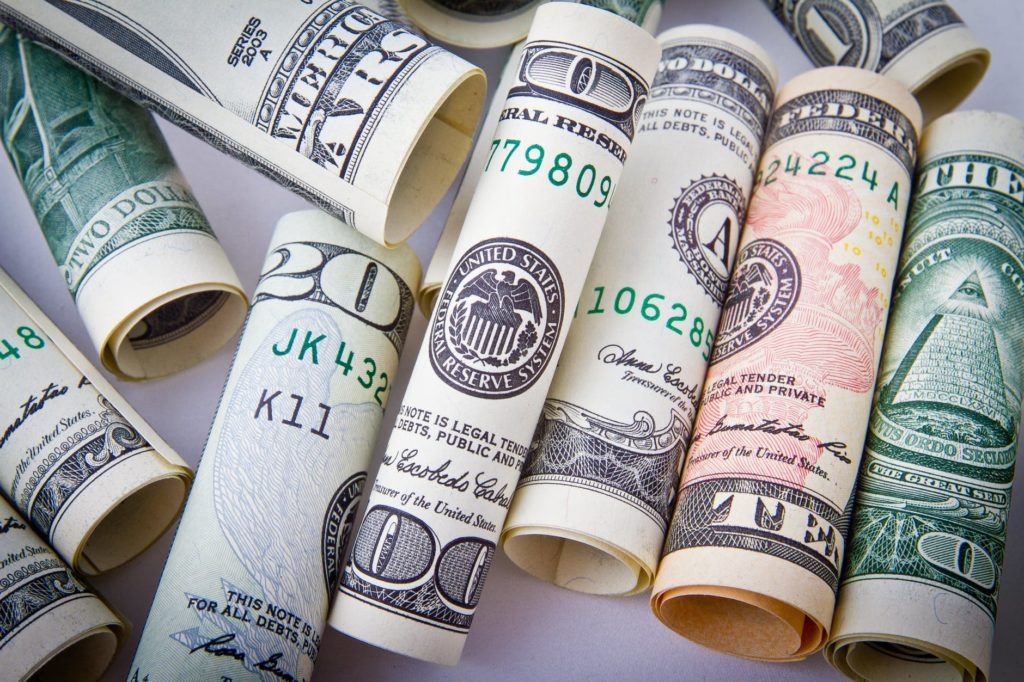How to Pay for Thanksgiving Dinner
Are food prices soaring?

Ever since the 2008-2009 crisis, the thinkers, pundits, and writers who ascribe to the Austrian School of economics have assured us that massive inflation was going to start. They assiduously refused to provide a date, but they assured us nonetheless, often suggesting we hoard gold and silver.
I long ago gave up on massive inflation happening. There were just too many countervailing considerations.
Like the United States army. As long as the U.S. dollar is the reserve currency, it has value everywhere in the world. It will continue as the reserve currency as long as the U.S. army is respected everywhere in the world.
The syllogism: If you have the strongest army, your currency has value no matter what. The U.S. has the strongest army. Therefore, its currency has value no matter what.
Here's how it works. I'm framing this as precisely as I can, while keeping it simple:
The federal government decides it needs money. It prepares a debt instrument that promises to pay $trillion.
The Federal Reserve then adds $trillion to its ledger by keying it into their ledger (literally creating the $trillion from nothing).
The Federal Reserve then gives the $trillion to the federal government in exchange for the debt instrument.
The federal government then disburses the money in various forms, such as COVID-relief packages.
American citizens then take that money (that was created out of nothing and required zero effort) to buy t-shirts, gadgets, Nike tennis shoes, and Catholic religious artifacts that are manufactured (through capital outlays and labor) in China and other countries.
As a result, instead of the $trillion staying in the United States and driving up the cost of goods (the basic law of supply and demand: the more of something you have relative to other things, the less valuable), it is diffused around the world, keeping the cost of goods stable.
And what's the military's role in all this?
I'm not sure. The theory is, if a country starts to object and says it's not going to accept our dollars anymore in exchange for goods, they'll find themselves in a conflict with the United States. I honestly don't know if that's true, but it might be.
And regardless, such an action would definitely put that country "on the outs" with the world's premier military, economic, and cultural power.
Earlier this year we created, what, four trillion dollars in COVID relief funds?
I realize our strength might allow us to export our inflation to the rest of the world, thereby taking the air out of the Weimer-like inflation that should happen (or seems like should happen).
But four trillion? It's a small world (after all). At this pace, we'd need to be able to export our inflation to Mars and parts of Jupiter.
It might be catching up with us.
And perhaps the first evidence is Thanksgiving 2020.
Food inflation is apparently here: Thanksgiving Dinner Costs Soar in 2020.
The price of turkeys is up about 12% from last year. Vegetables and breads are up 7%ish.
Such inflation doesn't strike me as scary. What is scary is if it portends something worse. Inflation has a way of going from 2 mph to 120 mph overnight. Once it starts, you can't get in front of it any better than you can run around the front of a car once it starts accelerating.
All you can do is prepare. You prepare by buying things that will inflate in price. Gold and land are the traditional means, but there are many others: works of art, bottles of fine wine and good liquor, guns, and Bitcoin.
If you have a smaller budget, you can buy a few handfuls of silver coins and stockpile goods that keep a long time, like peanut butter.
(I like to joke, "If the economy hits the skids, guns, liquor, and sex will continue to sell. That's why I keep working out with weights.")
But as mentioned before, inflation has been the mantra of the doom-gloomers for a long time, especially over the past dozen years, and it hasn't happened. We had inflation in the 1970s, but nothing remotely similar to Weimer or Zimbabwe.
For my money? I'd undertake a few basic precautions (i.e., I'd hedge my bets a little), but otherwise, I wouldn't be inclined to be too worried about it. The bottom line is, no one--whether it's the sober Austrians or the effusive Keynesians--knows what's going to happen.
